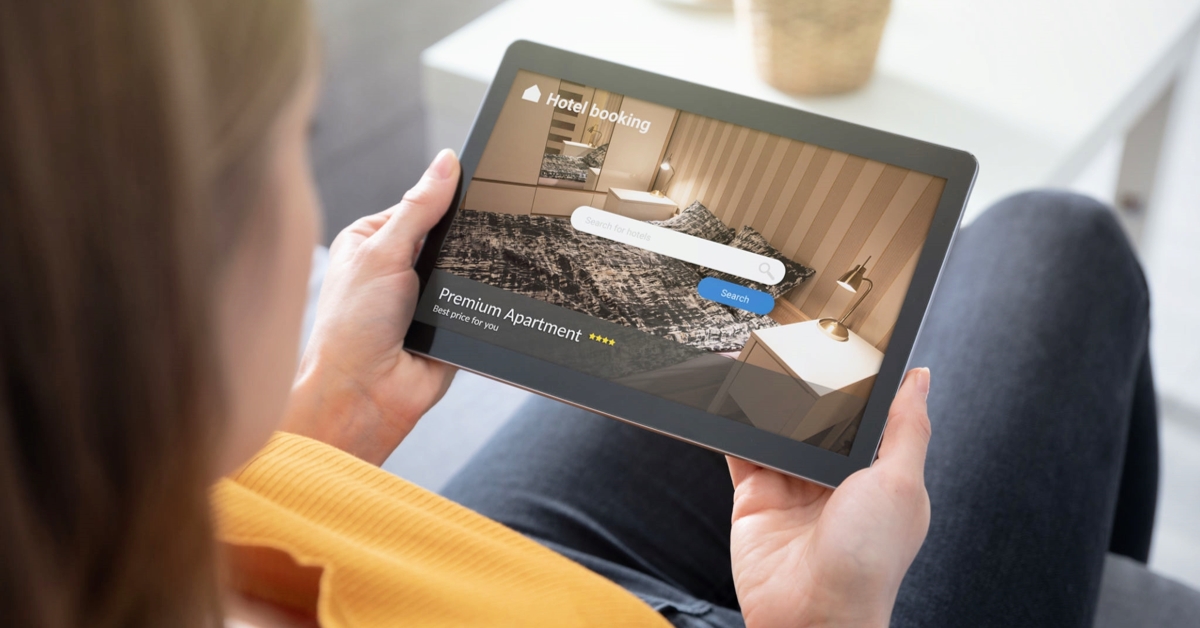Property management in 2024 confronts an increasingly competitive and dynamic landscape. Challenges such as fluctuating market trends, evolving tenant expectations, and the continuous need for technological adaptation are reshaping the role of property managers. To stay ahead, it’s crucial to set strategic, well-defined goals that not only address these challenges but also capitalise on new opportunities. This guide outlines key objectives that every property manager should aim for in the coming year, ensuring they not only meet but exceed industry standards.
Property Manager Goals: Enhancing Client Satisfaction
At the heart of property management lies the fundamental goal of enhancing client satisfaction. As market dynamics shift, so do the expectations of clients. Property managers must navigate these changes with a keen understanding of what their clients now seek. Modern clients often prioritise quick, effective communication, transparency in transactions, and a sense that their concerns are being heard and addressed.
To meet these expectations, property managers should adopt comprehensive communication strategies. This involves not only keeping clients informed about the day-to-day management of their properties but also providing insights into market trends and how these might impact their investments. Regular reports, facilitated by advanced software solutions, can keep clients up-to-date and assure them of the manager’s proactive approach.
Feedback mechanisms play a pivotal role in enhancing client satisfaction. Property managers should establish regular feedback channels, allowing clients to voice their opinions and suggestions. This continuous loop of feedback and improvement demonstrates a commitment to client satisfaction and can significantly boost client trust and loyalty.
Property Management Goals: Optimising Operational Efficiency
Operational efficiency is a cornerstone of successful property management. In 2024, this translates into the adoption of cutting-edge technologies and efficient resource management. Streamlining operations not only reduces overhead costs but also enhances the quality of services provided.
One area where technology can profoundly impact operational efficiency is through the use of property management software. These tools can automate routine tasks such as rent collection, maintenance scheduling, and tenant communication, freeing up valuable time for property managers to focus on strategic decision-making.
Efficient resource management is another critical aspect. This includes the effective allocation of human resources, financial budgeting, and maintenance operations. Property managers should aim to optimise their resource use, ensuring that each aspect of their operation runs smoothly and contributes to the overall success of the property.
Autohost.ai can significantly contribute to this goal by automating guest screening and enhancing security measures. This not only streamlines operations but also ensures a safer environment for tenants, which in turn can reduce liability and maintenance costs.
Property Management Goals and Objectives: Maximising Profitability
For property managers, balancing cost reduction with quality service is essential for maximising profitability. In an era where both owners and tenants demand more for their money, finding innovative ways to increase revenue streams while maintaining high service standards is key.
One approach to achieving this is through diversifying services offered. This could include offering premium services such as property upgrades, concierge services, or additional amenities. By providing value-added services, property managers can attract a broader client base and generate additional income streams.
The impact of effective guest screening on profitability cannot be overstated. By using services like Autohost.ai, property managers can ensure that only qualified tenants occupy their properties, reducing the likelihood of unpaid rents and property damage. This proactive approach to tenant selection can lead to long-term cost savings and higher overall profitability.
Goals for a Property Manager: Fostering Strong Tenant Relationships
Building and maintaining strong relationships with tenants is an indispensable goal for property managers. The bond between a property manager and their tenants is founded on trust, reliability, and a commitment to their well-being. Property managers can achieve this by ensuring consistent, high-quality service and by being approachable and responsive to tenant needs.
Trust and loyalty with tenants are cultivated through transparent and honest communication. This includes prompt responses to maintenance requests, clear information about policy changes, and regular updates about any developments affecting the property. An open-door policy, where tenants feel comfortable sharing their concerns and suggestions, can greatly enhance the tenant-manager relationship.
Proactive problem-solving is another key element in fostering strong relationships. Anticipating potential issues and addressing them before they escalate can significantly improve tenant satisfaction. For instance, regular property inspections and maintenance can prevent larger issues, demonstrating to tenants that their comfort and safety are top priorities.
Personalization in tenant interactions is also crucial. Recognizing the unique needs of each tenant and tailoring services accordingly can create a more connected and supportive community. This can range from acknowledging significant life events to customising communication methods based on tenant preferences.

What Makes a Good Property Manager: Embracing Innovation and Adaptability
The property management industry is continuously evolving, making innovation and adaptability fundamental traits of a successful property manager. Keeping abreast of industry trends, regulatory changes, and technological advancements ensures property managers can offer the best service possible.
Adapting to changes swiftly and effectively is crucial, especially in crisis management. Whether it’s dealing with a global pandemic, economic downturns, or natural disasters, a good property manager needs to have plans in place to handle such situations. This includes having flexible policies, emergency procedures, and strong support systems for tenants and staff.
Innovations in guest screening and safety, such as those offered by Autohost.ai, are instrumental in this regard. By utilising advanced technologies for background checks and security measures, property managers can ensure a safe environment for their tenants. This not only improves tenant satisfaction but also positions the property as a desirable place to live, attracting quality tenants.
Establishing and Achieving Sustainability Goals
Sustainability is no longer just a buzzword; it’s a crucial objective for property managers. Implementing eco-friendly practices not only benefits the environment but can also lead to cost savings and enhanced property value. Property managers should consider sustainability in all aspects of their operations, from energy-efficient building designs to waste reduction strategies.
Educating tenants and staff on the importance of sustainability is a vital step. This can involve organising workshops, providing informational materials, and encouraging sustainable practices like recycling and energy conservation. Creating a culture of sustainability within the property can foster community involvement and make sustainability a shared goal.
Implementing green technologies, such as solar panels or energy-efficient appliances, can significantly reduce the property’s carbon footprint. Additionally, investing in sustainable landscaping and water conservation measures not only enhances the aesthetic appeal of the property but also promotes environmental responsibility.
Strengthening Security and Safety Measures
Security and safety are paramount concerns for property managers. Ensuring that residents feel secure in their homes is a responsibility that cannot be overstated. This involves staying updated with the latest security technologies and practices, and ensuring these are effectively implemented in the property.
Comprehensive guest screening plays a vital role in enhancing the safety of a property. By using tools like Autohost.ai, property managers can conduct thorough background checks, reducing the risk of incidents and ensuring a safer community for all residents. This proactive approach to tenant selection is a critical step in building a secure environment.
Developing and regularly updating emergency response plans is also essential. These plans should include procedures for dealing with various emergencies, such as natural disasters, fires, or security breaches. Regular drills and communication with tenants about these plans can further enhance the safety of the property.
Cultivating a High-Performing Team
The success of a property manager often hinges on the performance of their team. Building a skilled, motivated, and cohesive team is crucial for achieving the varied and demanding goals of property management.
Recruiting the right talent and providing continuous training ensures that the team is equipped with the necessary skills and knowledge. Emphasising a culture of continuous learning and development can lead to higher job satisfaction and better performance.
The impact of a high-performing team on the overall success of property management cannot be overstated. A team that is well-trained, engaged, and aligned with the property’s goals can significantly enhance the quality of service provided to tenants and clients.
Conclusion
Property managers in 2024 face a landscape that requires agility, innovation, and a strong focus on relationships. By enhancing client satisfaction, optimising operational efficiency, embracing innovation, promoting sustainability, ensuring safety and security, and cultivating a high-performing team, property managers can set themselves apart in a competitive market.
Embrace these goals as opportunities to redefine your approach and elevate your property management standards. Remember, the future of property management is not just about buildings, but about the people who live and work in them. Now is the time to lead with vision, purpose, and a commitment to excellence. Let’s raise the bar together!




























